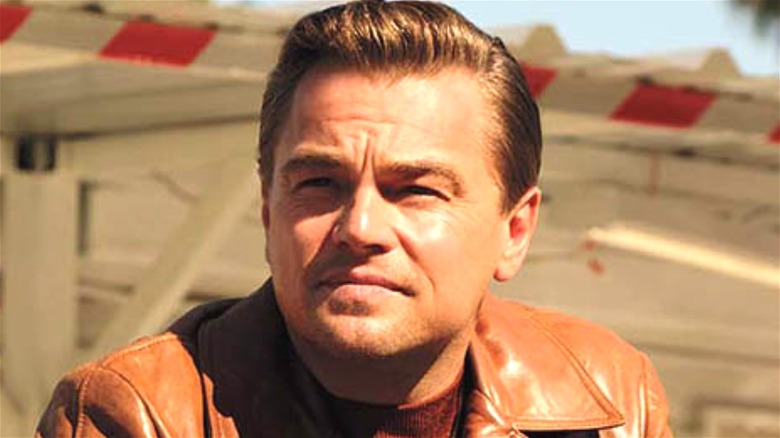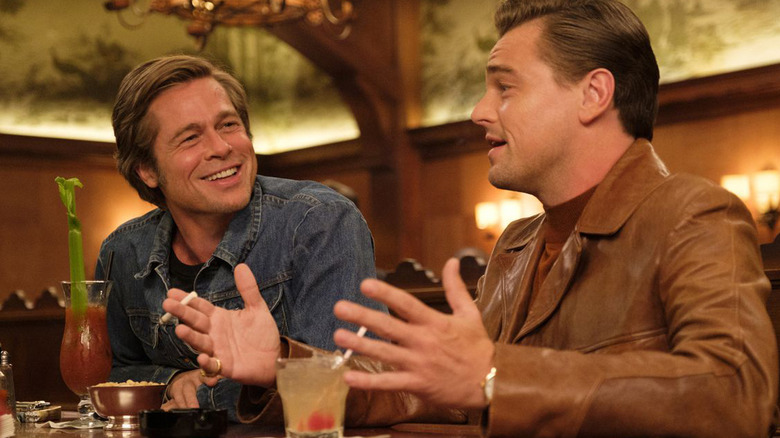The Big Change Once Upon A Time In Hollywood's Novel Made To DiCaprio's Character
"Once Upon a Time in Hollywood" was, in no uncertain terms, a success. Critics liked it, the Academy of Motion Picture Arts and Sciences awarded it two Oscars (via IMDb), and most recently, it served as the source material for a novel adaptation authored by none other than its director, Quentin Tarantino. The "Once Upon a Time in Hollywood" book is the first of a planned two Tarantino novels, per a contract with publisher HarperCollins.
Tarantino's shift into writing fiction just so happens to coincide with the announcement that he plans to retire from directing after his 10th film. He has not yet specified, however, whether that ultimately means that he intends to step away from creative endeavors entirely, or simply transition into, for example, continuing to write fiction and maybe taking on some production work here and there.
In either case, Tarantino has now become a bona fide novelist in advance of his planned retirement. As it turns out, his debut "Once Upon a Time in Hollywood" novel is not just a straightforward adaptation of its filmic inspiration, but rather reveals new truths about the film's canon, including confirming the veracity of a moment from Cliff Booth (Brad Pitt)'s past that was previously only implied.
Readers of the "Once Upon a Time in Hollywood" book will likewise find out new details about Rick Dalton (Leonardo DiCaprio) over the course of its story as well, including two big revelations.
Rick Dalton's complicated past, revealed
As described in an Los Angeles Times' profile about the book, Quentin Tarantino's "Once Upon a Time in Hollywood" book adaptation informs readers that "Dalton killed more Japanese in World War II than anyone else in the U.S. military."
How this changes the characterization of Rick Dalton in the "Once Upon a Time in Hollywood" movie will likely depend on the viewer. On one hand, killing more soldiers in a single country's military than virtually any other human being likely suggests some sort of pathology, whether it's driven by wartime patriotism or outright murderous intent. On the other hand, this is just the sort of bizarre mythology befitting of a Tarantino character, and is in line with certain other unsavory details about both Rick Dalton and Cliff Booth detailed in the film.
There's an even bigger piece of new characterization in the "Once Upon a Time in Hollywood" book, though, and that's the fact that Rick Dalton is revealed to be bipolar. This was never mentioned in the film, and given that Tarantino is the writer of both versions, it stands to reason that this fact shouldn't alter his characterization on-screen, whatsoever. However, when one re-watches the film, this does potentially deepen some of his more emotional moments throughout the story.
Tarantino's "Once Upon a Time in Hollywood" novel, which includes a fair amount of additional new story content, is available now.

